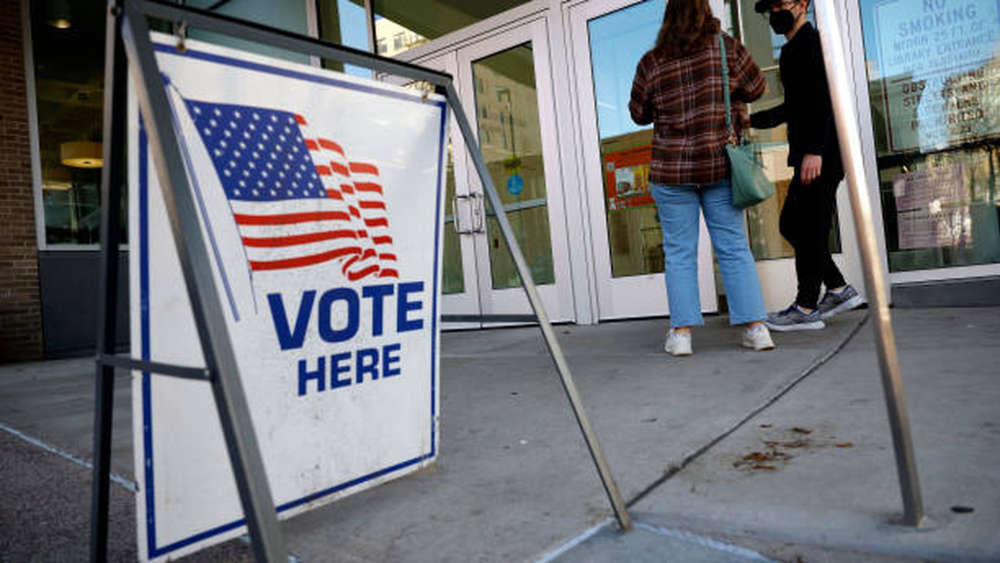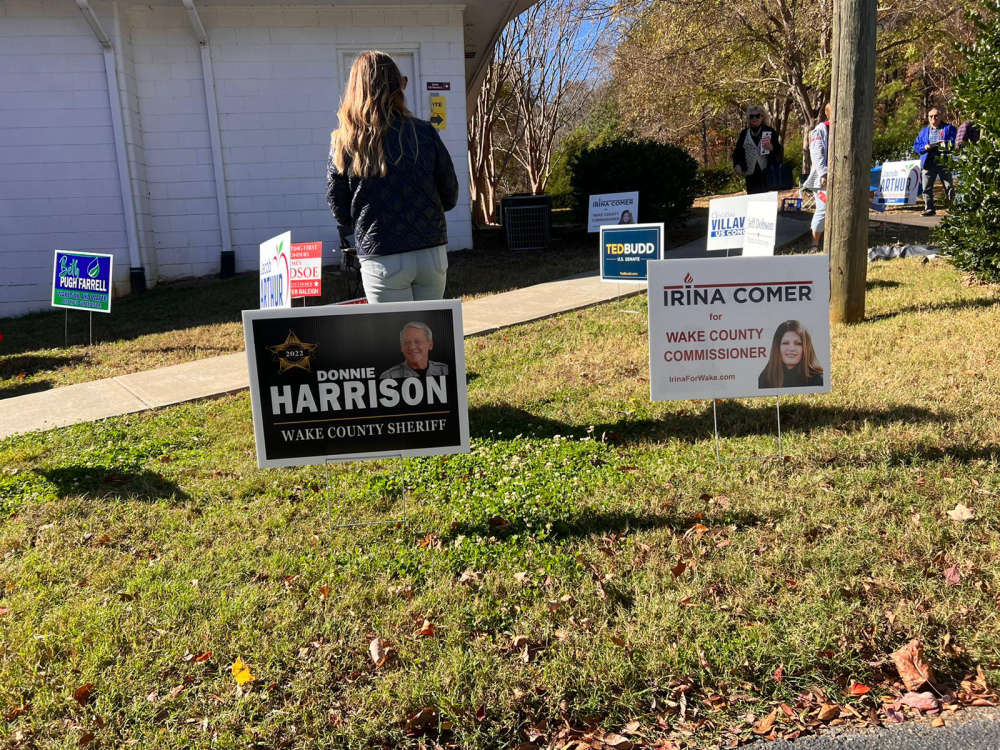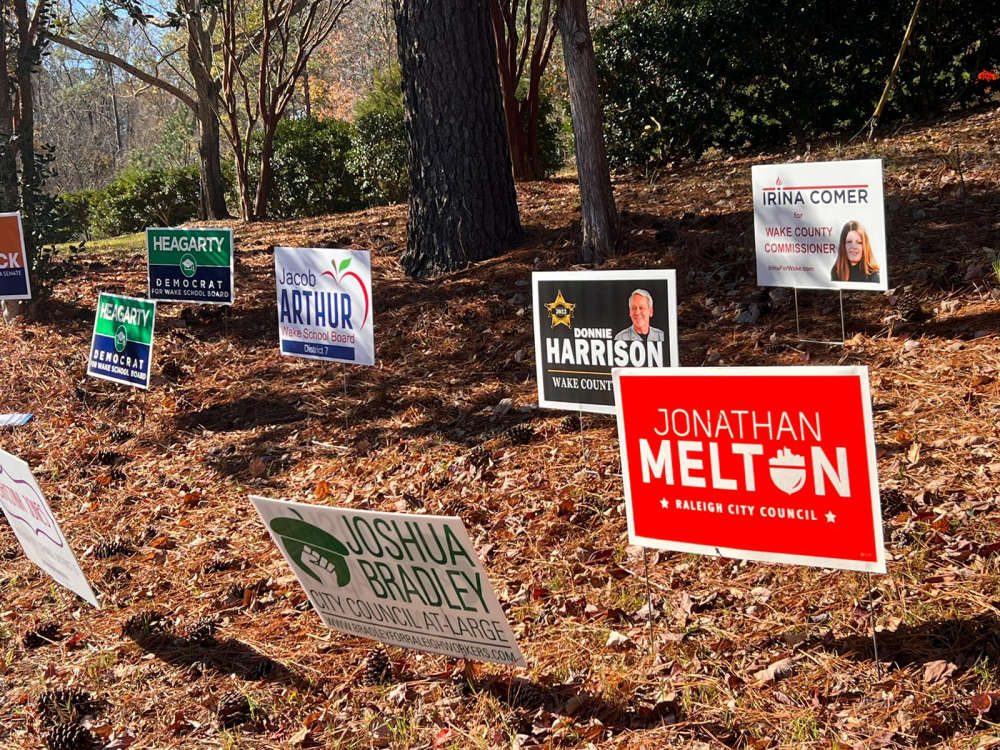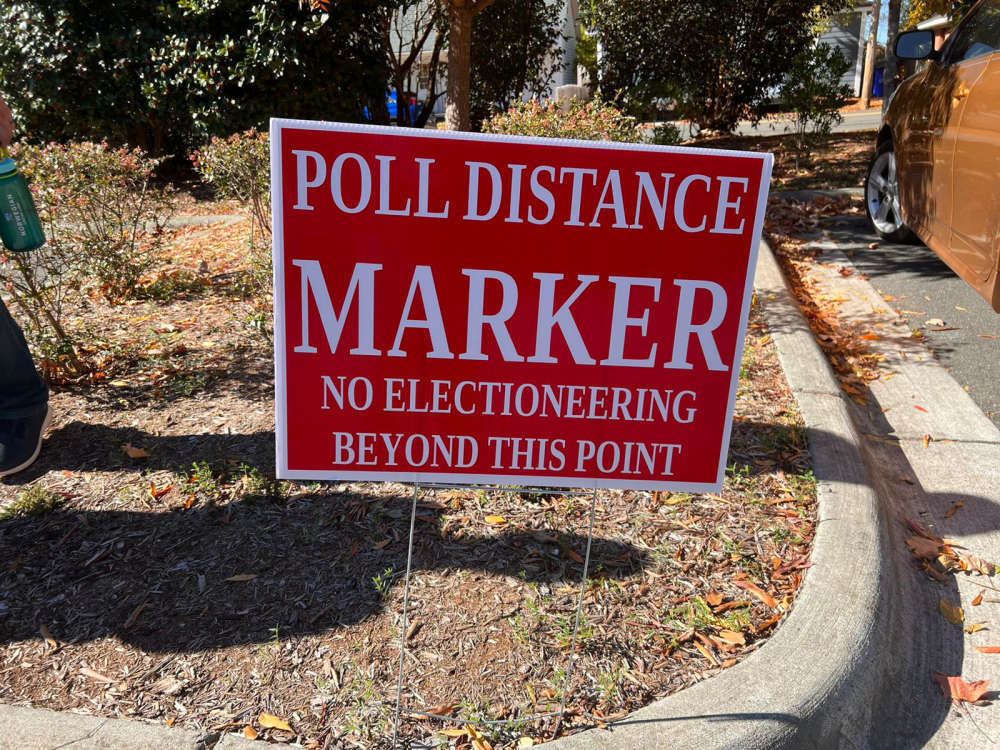
As Americans cast their votes, the two major parties are expressing increasingly different views of what a free and fair election looks like.
But even in their complaints, supporters of both parties are very different. While Republicans believe in widespread fraud by voters and election rigging by poll officers, Democrats believe in widespread voter suppression by government officials, voter discouragement by poll officers, and voter intimidation by members of the public.
WHAT REPUBLICANS ARE WORRIED ABOUT
Mail-In Ballots
43% of votes in the 2020 Presidential Election were sent in by mail, while only 28% were in-person on Election Day. The pandemic was the major reason many counties opted for mail-in for the first time, but now many of them are sticking with it.
Registered voters can now get their ballots by mail at home, fill them in, and send them back without leaving their homes.
Leading up to the 2020 poll, then-President Trump said repeatedly that mail-in voting favors Democrats. Quite a few Republican politicians and pundits echoed the sentiment, and it gradually became conventional wisdom.
But is it true?
No. Well, at least it wasn’t before the last election. Three different scientific studies analyzed a decade of voter data and found that counties switching to all-mail voting didn’t see an increase in Democrat votes, or saw a statistically insignificant increase.
But we may now be seeing a self-fulfilling prophecy. 2020 saw a drop in the number of registered Republicans requesting mail-in ballots. Experts think it’s because Rs are listening to their leaders, and refusing to vote by mail. So, we may see a trend developing of more Republicans voting in person, and more Democrats voting by mail.

But even if mail-in voting were an all-Democrat affair, that wouldn’t make it a bad thing. The Republican accusation goes further: that mail-in voting is rigged to help Dems win. They claim it has high levels of voter fraud, where votes are cast on behalf of ineligible people like felons, foreigners, and the dead.
But is Mail-In Voting subject to fraud?
According to the court so far, no. Republicans in different states - including Arizona and Pennsylvania - and the Trump campaign filed various suits about the 2020 election result. They didn’t get a single court verdict agreeing that mail-in votes were compromised.
Vote Counting
While nobody is openly against the counting of votes, there’s disagreement over which votes should be counted, when, and how.
Heading into the 2020 election, several Republican-controlled counties and states insisted that in-person ballots should be counted before mail-in ballots. That may have been the subtext behind then-President Trump’s “STOP THE COUNT” tweet, which he dropped the Thursday after Tuesday’s vote. Trump had hinted more than once that he believed he would win the in-person votes in places like Pennsylvania but would be “cheated” with mail-in ballots.
Ironically, if America HAD stopped the count at the precise moment Trump tweeted, he would have lost anyway, because Biden was ahead in enough states to get 270 electoral votes.
Again, court cases after the elections showed that no laws were broken by continuing to count votes days later.
There’s also a battle over the deadline for receiving votes. In 2020, Trump also tweeted: “ANY VOTE THAT CAME IN AFTER ELECTION DAY WILL NOT BE COUNTED!”.
Narrator: They were counted.

In many jurisdictions, a ballot can count as long as the voter put it in the mail before a deadline date, with the postmark as evidence.
But what if the mail-in ballot has an error? Democrats say that if the county spots the error before Election Day, the voter should get a chance to correct it. Republicans say no. Yesterday in Pennsylvania, the court found in favor of the Democrats.
There’s also controversy about how votes are counted. In 2020, various pro-Trump groups accused vendors of voting machines and vote-counting machines, of colluding with Democrats to steal the election. This time, it was the accused who went to court. Dominion, one of the biggest vendors, filed multimillion-dollar defamation suits against various news outlets, politicians, journalists, and public figures who made the claims. They’ve gotten some (like Fox News and Newsmax) to retract.
In 2021, the Arizona State Senate ordered an audit of Maricopa County presidential ballots. The Republican majority in the Senate claimed they suspected fraud in how the votes were counted, both by machines and by humans in a previous manual audit.
The audit found no irregularities but added 300 more votes. For Biden.
WHAT DEMOCRATS ARE WORRIED ABOUT
Voter Roll Purges
Many democrats believe that Republican officials in some jurisdictions make conscious efforts to remove names from the voters’ register in areas where minorities live in high numbers. That’s because almost every non-White demographic in the USA tends to vote Democrat.
The highest profile accusation was in the 2018 Georgia Gubernatorial Election. The Republican Secretary of State, Brian Kemp, supervised the removal of 1.4million voters between 2012 and 2018, with 700,000 of those in 2017, the year before the polls.
He was also the Republican candidate.
Kemp won the election by 54,000 votes, but his opponent Stacey Abrams ended her campaign without conceding. She went to court with the fraud claims. And while the court found that some of the claims were valid, it also decided that others weren’t. It didn’t rule on the major point of whether the election should be overturned, because Abrams’ NGO, which filed the suit, had no legal standing to do so.
Long Lines and Short Windows
Democrats allege that a favorite Republican tactic is to reduce the number of polling locations in Democrat-leaning areas, especially poorer neighborhoods. Coupled with time limits for when polls close, this usually means that many voters in those places never get to vote. They’re still in the queues when polls close.

Usually, it is difficult to prove wilful suppression in cases like this. Most suits fail, but some have succeeded. It usually comes down to the accuser’s ability to prove that the Government had the resources to create more polling locations, but chose not to do so, even though they did it in other areas. Usually, Republicans claim that there are limited resources, especially due to the relative poverty of the local government in affected places.
Voter ID Laws
Democrats claim that laws requiring physical photo ID are a way to discriminate against their supporters. That’s because they believe that people of color and lower-income Americans are less likely to have a Photo ID. Republicans insist that a Photo ID is simply and objectively the most reliable way to prove a voter’s identity and that the laws are more likely to stop a fraudulent voter than disenfranchise a legitimate one.
But at least one court has disagreed. In 2016, North Carolina’s Voter ID law was struck down because the Court found that the Republican-controlled General Assembly put it in place knowing it would affect more black voters than white because they also knew that black voters were more likely to vote Democrat.
Voter Intimidation
Democrats are also more likely to claim that people at the polls - both officials and citizens - are attempting to scare others from voting. We are currently hearing those claims in Arizona, for example. Armed people have been spotted at various ballot drop boxes. The Dems insist that these are Republican supporters, instigated by conspiracy theories about stolen elections. And they’re getting agreement from an unexpected source. Stephen Richer is the Maricopa County Recorder, who keeps the voter register and conducts elections. But he’s also a Republican, yet he agrees that some in his party are trying to intimidate voters.
The claims are also corroborated by civil society. The League of Women Voters identifies three types of election disruption:
- Direct disruption, like intimidation at the polls, unauthorized ID checks, and going door to door to ask whom people voted for.
- Indirect Disruption, like disinformation about the election’s credibility. An example is the widespread messaging in Arizona that Democrats are hiring “mules” to vote for them. Mi Familia Vota, another citizen’s group, says the use of drug terminology is a dog whistle to encourage intimidation of Hispanic voters.
- Legislative disruption, like the. proposed hand counting of ballots, and Photo ID laws.
There are so many claims and counter-claims on both sides about electoral malpractice. The danger is that every two years, both sides walk away with an even more divergent belief about what just happened. If the American public cannot build a consensus around their electoral system, they are likely to see more legal and illegal challenges to it. But more disturbingly, they could see a loss of confidence in the peaceful transition of power. That’s usually not a good sign for a democracy. The fastest way for any game to be abandoned is if the players can’t agree to the rules, and the same event becomes both a goal and a foul. The same dice throw saves a player and kills them. The only outcome is a riot on the pitch. A tossing aside of the board.
A January 6th.
Or worse.
Hard Facts: Disturbing America
Hard Facts host Sandra Ezekwesili is in the US covering the 2022 midterms, on the invitation of the State Department's Foreign Press Center.
During the first two weeks of November, Sandra will be sharing her observations from the Campaign Trail in Arizona and North Carolina.


